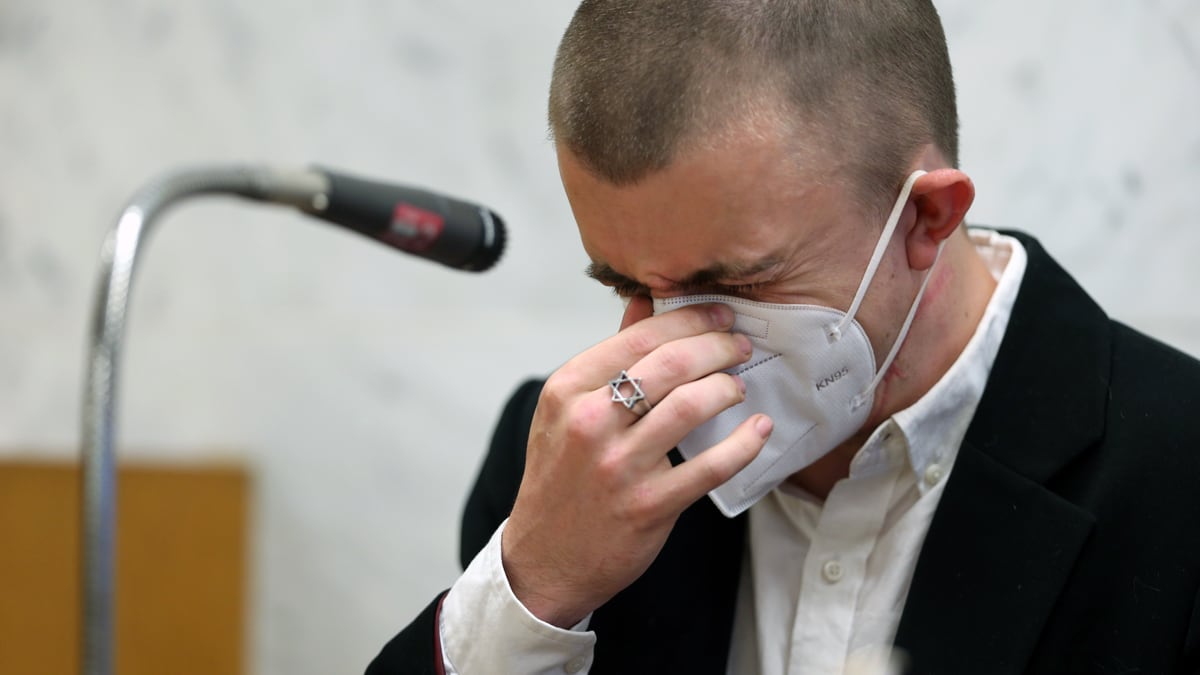Jeremy Christian will remain incarcerated for the rest of his life. On June 24, Multnomah County Circuit Judge Cheryl Albrecht sentenced him to two consecutive life sentences without possibility of parole.
But memories of the May 2017 attack he carried out on a crowded MAX train—stabbings that left two dead and another seriously wounded—have created another sort of prison for the survivors and families of the victims.
On a sunny Friday afternoon, Christian murdered Ricky Best and Taliesin Namkai-Meche. He stabbed a third man, Micah Fletcher, in the neck, as the men interrupted Christian's racist rant against two Black teenage girls. Fletcher survived the stabbing.
Even at his sentencing, Christian demanded attention with enraged shouting. He interrupted the June 23 testimony of Demetria Hester, whom he assaulted the night before the killings, to tell her he should have killed her. He was dragged out of the courtroom and watched the rest of the proceedings via videoconferencing.
But there are other voices than Christian's worth hearing.
In previous issues, WW has published the testimony of Destinee Mangum and Walia Mohammed, the girls Christian targeted. This week, we were struck by the remarks of Fletcher. In a victim's impact statement, he reflected on the past three years and spoke via teleconference to the person he describes as "the man that essentially ruined my life."
In his own words, here is what Fletcher had to say. The statement has been condensed and edited lightly for clarity.
Even before everything started, I'd never been one who was good at sleeping. It's never been my forte. Now, the first thing I noticed after the stabbing in the car was that I could sleep. It was weird, it was strange.
The difficulty with it was that the sleep came with nightmares in perpetual forms. I would dream of sitting in a metal tunnel and it slowly filling up with blood until I was drowning in it. And I could watch in the liquid as it swirled into different faces. I can't tell you it looked like anyone in particular.
[As] I began attempting to find out how to navigate the new normal of my life, I discovered that gin is an excellent remedy for anxiety. I began drinking every day, all day. To be quite frank with you, I can pretty much guarantee you that most of the earlier footage you see from interviews, I was probably at least kind of drunk at minimum, if not flat-out hammered, and even one in which I don't remember it happening. That is a different kind of shame that I cannot express to you. My point is, I became what we call a full-blown addict and an alcoholic.
There is not a room in this world that I can enter without at least scanning it first to decide who the person is that is most likely to hurt me, how close by they are, attempting the calculations: How many steps would it take for them to get to me, what kind of weapons do they have? I basically spend the first 30 seconds of every event I enter trying to figure out how easily I could die.
I wanted to build community out of this. That's what I wanted. I wanted to get to know Ricky [Best's] son, get to understand how he can be so intelligent and brave, especially when speaking like he did yesterday. I wanted to get to know [Taliesin Namkai-Meche's mother,] Asha, and all of the other members of Taliesin's family. But I quickly realized I can't be in a fucking room with any of them without constantly remembering the corpses of their loved ones. The way Taliesin's shirt was so covered in blood, it was actually changed. It was as if it had been dyed.
I have had three years to try to stew over this and try to puzzle up all the different angles. Mr. Christian, I want you to understand something. You and I, both as alcoholics, both as people that are mentally ill, the difference being, that I was given an abundance of resources and that you apparently either weren't or those resources failed to actually be of any service to you.
[The situation] forced me to realize you are also a person. As much as what you have done is some of the most heinous shit a person can do, you are not some mythological, all-powerful, terrorist monster. You are a man who was drunk with a knife on a train. That is what you are. That is what I remembered you as. And though I hope you sit in a cell for the rest of your life so that you are never able to hurt another person the way you have hurt those families again, I do hope you find a way to become better than what you are today.
I don't care about the weed in the garden that is my community. I want to dig out the roots. I want this shit to stop. I never want to look another family in the eye and miss a person I never even got the chance to meet.


